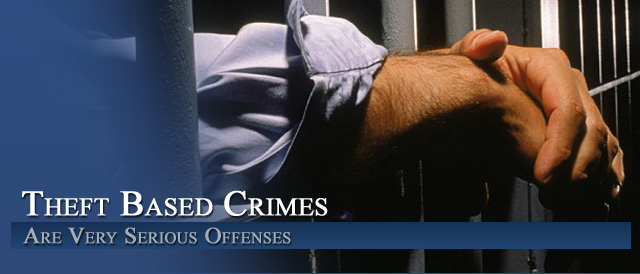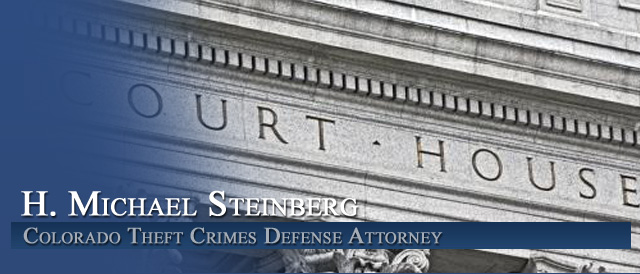




Colorado Expedited Sealing Law – 24-72-702.5 – Unexpected Delays In Certain Cases
By H. Michael Steinberg Colorado Theft Crimes Criminal Defense Lawyer – Attorney
 Colorado Expedited Sealing Law – 24-72-7025 – Unexpected Delays In Certain Cases – While I have written about Colorado’s Expedited Sealing Law before, the following examines more closely the procedural rules and applications of the relatively new law.
Colorado Expedited Sealing Law – 24-72-7025 – Unexpected Delays In Certain Cases – While I have written about Colorado’s Expedited Sealing Law before, the following examines more closely the procedural rules and applications of the relatively new law.
Colorado Expedited Sealing Law Has Built In Delay For Exercise Of Victim’s Rights
Many applications for an expedited sealing law will be delayed because of a provision in Colorado’s new expedited sealing law that mandates Colorado Judges to provide notice to victims of a long list of crimes charged. These crimes are designated Victim’s Bill Of Rights crimes and give the alleged victim the right to OBJECT to having the case sealed.
This article examines the actual law and points out the provisions in the law and the laws links to other Colorado laws that are incorporated into the analysis.
Always Start With The Law – Section 24-72-702.5 C.R.S. – Colorado’s Expedited Sealing Law
The best way to understand any criminal law in Colorado and anywhere else is to start with the law itself.
In this article I parse the new statute 24-72-702.5 C.R.S., paragraph by paragraph, section by section, so that you can see how the law works and what happens under various sections of the Colorado’s Expedited Sealing Laws when you attempt to use the law and exercise new rights
There are clearly some limitations on both qualifying for the expedited sealing and the speed at which the law can be utilized. This article answers, for example, how expedited is expedited”
Parsing Colorado’s Expedited Criminal Justice Record Sealing Law Section 24-72-702.5 C.R.S.
§ 24-72-702.5. Sealing Criminal Justice Records Other than Convictions – Simplified Process – Defendant Option – Processing Fees
[HMS – Section 1(a) provides the circumstances of dismissal of the case and provides for the expedited process. It provides for an informal process that can be made any time after the case is dismissed in it’s entirety]
(1) (a) In addition to the procedures in section 24-72-702, any time:
– a case against a defendant is completely dismissed, when the defendant is acquitted of all counts in the case,
– the defendant completes a diversion agreement under section 18-1.3-101, or
– the defendant completes a deferred judgment and sentence under section 18-1.3-102, and all counts are dismissed,
…the court shall give the defendant eligible to have his or her criminal justice records sealed the option of immediately moving to have his or her criminal justice records sealed.
This motion may be informal and may be made in open court at the time of the dismissal of the case or the acquittal of the defendant.
The motion may also be made by the defendant at any time subsequent to the dismissal or acquittal through the filing of a written motion in the criminal case with written notice to the prosecuting attorney.
[HMS – Section 1(b) provides that there is no longer necessary to file a independent civil action to seal a case. More importantly – unlike other new laws – can be applied RETROACTIVELY to all eligible Colorado cases.]
(b) If the defendant moves under subsection (1)(a) of this section to seal his or her criminal justice records under the expedited procedures of this section, the court shall promptly process the defendant’s request to seal the criminal justice records within the criminal case without the filing of an independent civil action and without any further evidence except for evidence of the dismissal or acquittal.
Motions filed under this section are procedural in nature and sealing pursuant to this applies retroactively for all eligible cases when the case has been completely dismissed or the defendant has been acquitted of all counts in a state or municipal criminal case.
[HMS – Section 1(c) provides for a delay in the operation of the law due to the requirement of notice to the victim under Colorado’s Victim Bill Of Rights to be given by the District Attorney involved in the case. The law sets a 42 day deadline cap for the alleged victim to have an opportunity to object to – or consent to – the sealing of the record.]
(c) Notwithstanding the provision of subsection (1)(b) of this section, if the defendant is acquitted of or if the case dismissed is a crime enumerated in section 24-4.1-302(1) in which notice of a hearing on a motion to seal is required pursuant to section 24-4.1-303(11) (b.7),
….the court shall allow the district attorney opportunity to notify the victim and shall set a return date for a hearing on the sealing motion no later than forty-two days after receipt of the motion.
[HMS – Section 1(d) provides for the procedure for the Court to notify ALL agencies that have custody of criminal records involving this case. The Defendant can ask, within 7 days, for additional agencies to receive the Order to Seal if they so desire.]
(d) When the court seals criminal justice records under this section, the court shall provide a copy of the court order to the Colorado bureau of investigation, and the defendant shall pay to the bureau any costs related to the sealing of his or her criminal justice records in the custody of the bureau. The court shall also provide a copy of the court order to each custodian who may have custody of any records subject to the order.
The defendant shall provide to the court, within seven days of the motion if made orally or in conjunction with the motion if filed in writing, a list of all agency custodians who may have custody of any records subject to the order. Additionally, the defendant may also provide a copy of the order to any other custodian of records subject to the order. Each custodian that receives a copy of the order shall remove the records that are subject to the order from its records.
(e) The provisions of section 24-72-702(1)(d) to (1)(g) and section 24-72-702(4) apply to this section.
(f) This section does not apply to records that are subject to the procedure set forth in section 18-13-122(13). [ HMS – This applies to the Colorado Minor In Possession Laws.]
[HMS – Section 2 (a) provides for a 65 dollar fee to cover the actual costs of the sealing of the criminal justice records which can be waived if the Defendant is found to be indigent.]
(2) (a) A defendant moving to have his or her criminal justice records sealed under this section shall pay a processing fee of sixty-five dollars to cover the actual costs related to the sealing of the criminal justice records, which may be waived by the court upon a determination of indigency.
(b) When the motion to seal the criminal case is filed in state court, the processing fees collected under subsection (2)(a) of this section must be transmitted to the state treasurer and credited to the judicial stabilization cash fund created in section 13-32-101(6).
(c) When the motion to seal the criminal case is filed in municipal court, the processing fees collected under subsection (2)(a) of this section must be reported and paid as municipal costs and must be transmitted to the treasurer of the municipality and deposited in the general fund of the municipality pursuant to section 13-10-115.
Additional Statutes To Note – As Referenced In The Expedited Sealing Statute
What follows are important laws that bear on the Colorado Expedited Sealing Law. Foe example the crimes listed in Section 24-4.1-302 – below – are those that require the alleged victim to be notified of the attempt to seal the case at issue and the alleged victim’s right to object to that sealing of the record (see next statute below)
§ 24-4.1-302.5. Rights Afforded to Victims) Under The Colorado Victims Rights Law.
Victims of and Witnesses to Crimes – § 24-4.1-302. Definitions
(1) “Crime” means any of the following offenses, acts, and violations as defined by the statutes of the state of Colorado, whether committed by an adult or a juvenile:
(a) Murder in the first degree, in violation of section 18-3-102, C.R.S.;
(b) Murder in the second degree, in violation of section 18-3-103, C.R.S.;
(c) Manslaughter, in violation of section 18-3-104, C.R.S.;
(d) Criminally negligent homicide, in violation of section 18-3-105, C.R.S.;
(e) Vehicular homicide, in violation of section 18-3-106, C.R.S.;
(f) Assault in the first degree, in violation of section 18-3-202, C.R.S.;
(g) Assault in the second degree, in violation of section 18-3-203, C.R.S.;
(h) Assault in the third degree, in violation of section 18-3-204, C.R.S.;
(i) Vehicular assault, in violation of section 18-3-205, C.R.S.;
(j) Menacing, in violation of section 18-3-206, C.R.S.;
(l) First degree kidnapping, in violation of section 18-3-301, C.R.S.;
(m) Second degree kidnapping, in violation of section 18-3-302, C.R.S.;
(n) (I) Sexual assault, in violation of section 18-3-402, C.R.S.; or
(p) (I) Unlawful sexual contact, in violation of section 18-3-404, C.R.S.; or
(q) Sexual assault on a child, in violation of section 18-3-405, C.R.S.;
(r) Sexual assault on a child by one in a position of trust, in violation of section 18-3-405.3, C.R.S.;
(s) Sexual assault on a client by a psychotherapist, in violation of section 18-3-405.5, C.R.S.;
(s.3) Invasion of privacy for sexual gratification, in violation of section 18-3-405.6, C.R.S.;
(t) Robbery, in violation of section 18-4-301, C.R.S.;
(u) Aggravated robbery, in violation of section 18-4-302, C.R.S.;
(v) Aggravated robbery of controlled substances, in violation of section 18-4-303, C.R.S.;
(x) Incest, in violation of section 18-6-301, C.R.S.;
(y) Aggravated incest, in violation of section 18-6-302, C.R.S.;
(z) Child abuse, in violation of section 18-6-401, C.R.S.;
(aa) Sexual exploitation of children, in violation of section 18-6-403, C.R.S.;
(bb) Crimes against at-risk adults or at-risk juveniles, in violation of section 18-6.5-103, C.R.S.;
(bb.3) Any crime identified by law enforcement prior to the filing of charges as domestic violence, as defined in section 18-6-800.3 (1), C.R.S.;
(bb.7) An act identified by a district attorney in a formal criminal charge as domestic violence, as defined in section 18-6-800.3 (1), C.R.S.;
(cc) Any crime, the underlying factual basis of which has been found by the court on the record to include an act of domestic violence, as defined in section 18-6-800.3 (1), C.R.S., pursuant to section 18-6-801 (1), C.R.S.;
(cc.1) (I) Stalking, in violation of section 18-3-602, C.R.S.;
(II) Stalking, in violation of section 18-9-111 (4), C.R.S., as it existed prior to August 11, 2010;
(cc.3) A bias-motivated crime, in violation of section 18-9-121, C.R.S.;
(cc.5) Careless driving, in violation of section 42-4-1402, C.R.S., that results in the death of another person;
(cc.6) Failure to stop at the scene of an accident, in violation of section 42-4-1601, C.R.S., where the accident results in the death of another person;
(dd) Any criminal attempt, as described in section 18-2-101, C.R.S., any conspiracy, as described in section 18-2-201, C.R.S., any criminal solicitation, as described in section 18-2-301, C.R.S., and any accessory to a crime, as described in section 18-8-105, C.R.S., involving any of the crimes specified in this subsection (1);
(ee) Retaliation against a witness or victim, in violation of section 18-8-706, C.R.S.;
(ee.3) Intimidating a witness or a victim, in violation of section 18-8-704, C.R.S.;
(ee.7) Aggravated intimidation of a witness or a victim, in violation of section 18-8-705, C.R.S.;
(ff) Tampering with a witness or victim, in violation of section 18-8-707, C.R.S.;
(gg) Indecent exposure, in violation of section 18-7-302, C.R.S.;
(hh) Violation of a protection order issued under section 18-1-1001, C.R.S., against a person charged with committing sexual assault, in violation of section 18-3-402, C.R.S.; sexual assault on a child, in violation of section 18-3-405, C.R.S.; sexual assault on a child by one in a position of trust, in violation of section 18-3-405.3, C.R.S.; or sexual assault on a client by a psychotherapist, in violation of section 18-3-405.5, C.R.S.;
(ii) Human trafficking in violation of section 18-3-503 or 18-3-504, C.R.S.;
(jj) First degree burglary, in violation of section 18-4-202, C.R.S.;
(kk) Retaliation against a judge, in violation of section 18-8-615, C.R.S.; retaliation against a prosecutor, in violation of section 18-8-616, C.R.S.; or retaliation against a juror, in violation of section 18-8-706.5, C.R.S.;
(ll) Child prostitution, in violation of section 18-7-401, C.R.S.; soliciting for child prostitution, in violation of section 18-7-402, C.R.S.; procurement of a child for sexual exploitation, in violation of section 18-6-404, C.R.S.; pimping of a child, in violation of section 18-7-405, C.R.S.; inducement of child prostitution, in violation of section 18-7-405.5, C.R.S.; or patronizing a prostituted child in violation of section 18-7-406, C.R.S
Relevant Sections Of Colorado’s Victim Bill Of Rights
§ 24-4.1-302.5. Rights Afforded to Victims
(1) In order to preserve and protect a victim’s rights to justice and due process, each victim of a crime has the following rights:
(a) The right to be treated with fairness, respect, and dignity, and to be free from intimidation, harassment, or abuse, throughout the criminal justice process;
(b) The right to be informed of and present for all critical stages of the criminal justice process as specified in section 24-4.1-302 (2); except that the victim shall have the right to be informed of, without being present for, the critical stages described in section 24-4.1-302 (2) (a), (2) (a.5), (2) (a.7), (2) (e.5), (2) (k.3), (2) (n), (2) (p), (2) (q), and (2) (u);
(b.5) The right to be informed of and present for the critical stages described in section 24-4.1-302 (2) (k) to (2) (q) and (2) (s), upon the written request of the victim; except that the victim shall have the right to be informed of the critical stage described in section 24-4.1-302 (2) (l) without submitting a written request for notification;
Additional – Relevant Section Of Colorado Victim’s Rights Law 24-4.1-303(11)
(11) The district attorney shall inform a victim of the following:
(b.7) Any hearing concerning a petition for sealing of records as described in section 24-72-702 that was filed by a defendant in the criminal case and whose crime falls under section 24-4.1-302 (1). The notification should be made using the last known contact information that is available for the victim.
Colorado Expedited Sealing Law – 24-72-702.5 – Unexpected Delays In Certain Cases
If you found any of the information I have provided on this web page article helpful please click my Plus+1 or the Share buttons for Twitter and Facebook below so that others may also find it.
The contents of this article are based upon my research, my personal experience and my personal analysis and opinions developed from my thirty six years (as of 2017) of criminal trial experience from both sides of the courtroom – as a former career prosecutor for Arapahoe and Douglas Counties (13 years) and as the owner of my own Criminal Defense Law Firm since 1999 (18 years).
The reader is also admonished that Colorado criminal law, like criminal law in every state and at the Federal level, changes constantly. The article appearing above was accurate at the time it was drafted but it cannot account for changes occurring after it was uploaded.
If, after reading this article, you have questions about your case and would like to consider retaining our law firm, we invite you to contact us at the Steinberg Colorado Criminal Defense Law Firm – 303-627-7777.
Never stop fighting – never stop believing in yourself and your right to due process of law. You will not be alone in court, H. Michael will be at your side every step of the way – advocating for justice and the best possible result in your case. H. Michael Steinberg is passionate about criminal defense. His extensive knowledge and experience of Colorado Criminal Law gives him the edge you need to properly handle your case
 ABOUT THE AUTHOR: H. Michael Steinberg – Email The Author at:
ABOUT THE AUTHOR: H. Michael Steinberg – Email The Author at:
A Denver Colorado Criminal Defense Lawyer – or call his office at 303-627-7777 during business hours – or call his cell if you cannot wait and need his immediate assistance – please call 720-220-2277.
“A good criminal defense lawyer is someone who devotes themselves to their client’s case from beginning to end, always realizing that this case is the most important thing in that client’s life.”
You should be careful to make a responsible choice in selecting a Colorado Criminal Defense Lawyer. We encourage you to “vet” our firm. Over the last 36 plus years – by focusing ONLY on Colorado criminal law – H. Michael has had the necessary time to commit to the task of constantly updating himself on nearly every area of criminal law, to include Colorado criminal law and procedure and trial and courtroom practice.
Putting more than 36 years of Colorado criminal defense experience to work for you.
H. Michael works hard to get his clients the best possible results in and out of the courtroom. He has written, and continues to write, extensively on Colorado criminal law and he hopes this article helps you in some small way – Colorado Expedited Sealing Law – 24-72-702.5 – Unexpected Delays In Certain Cases.

Other Articles of Interest:
- How To Defend A Colorado Criminal Theft Charge – Tactics And Common Sense
- A Denver Colorado Criminal Lawyer Warns – NEVER Agree To Speak To The Police – But If You Do…












